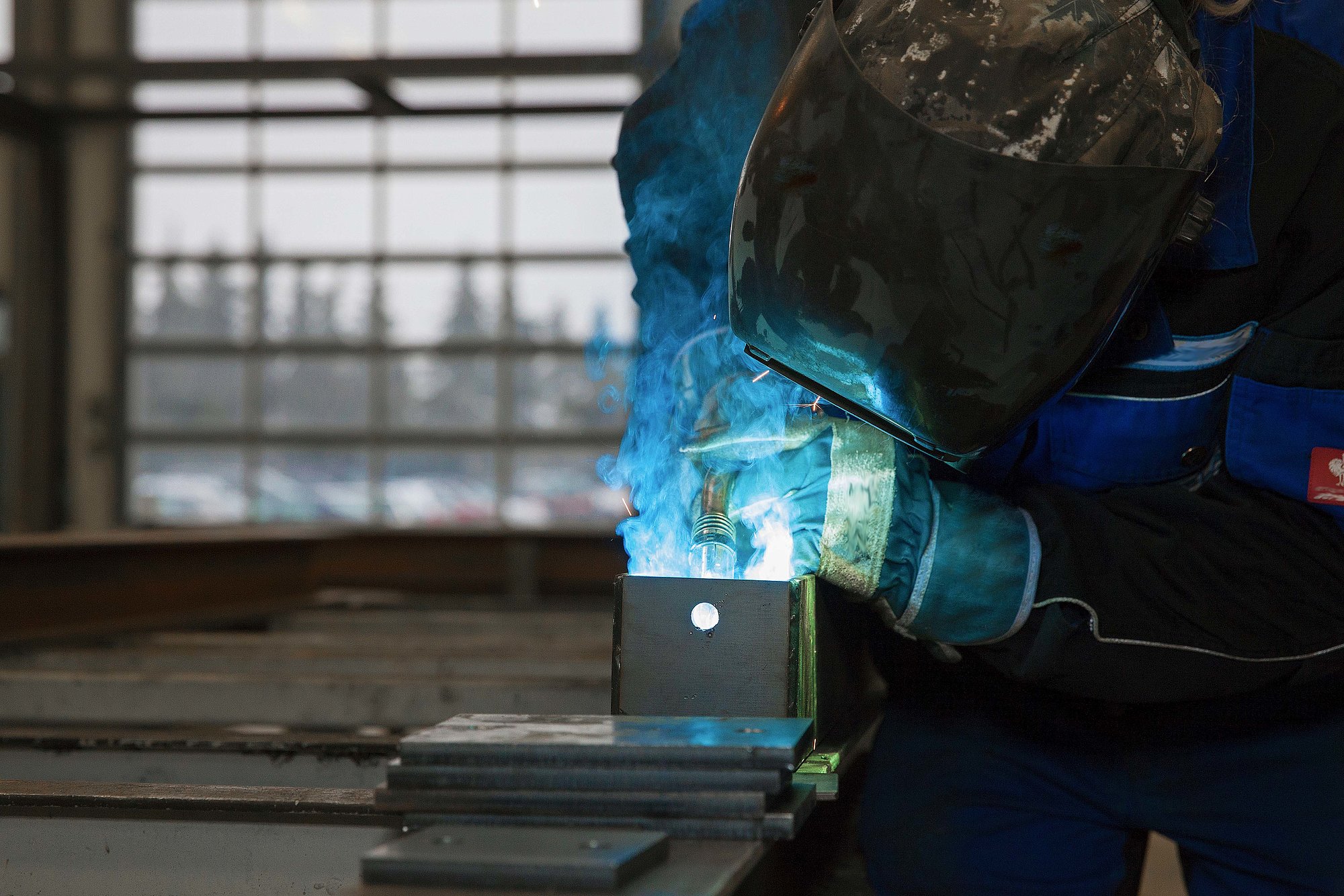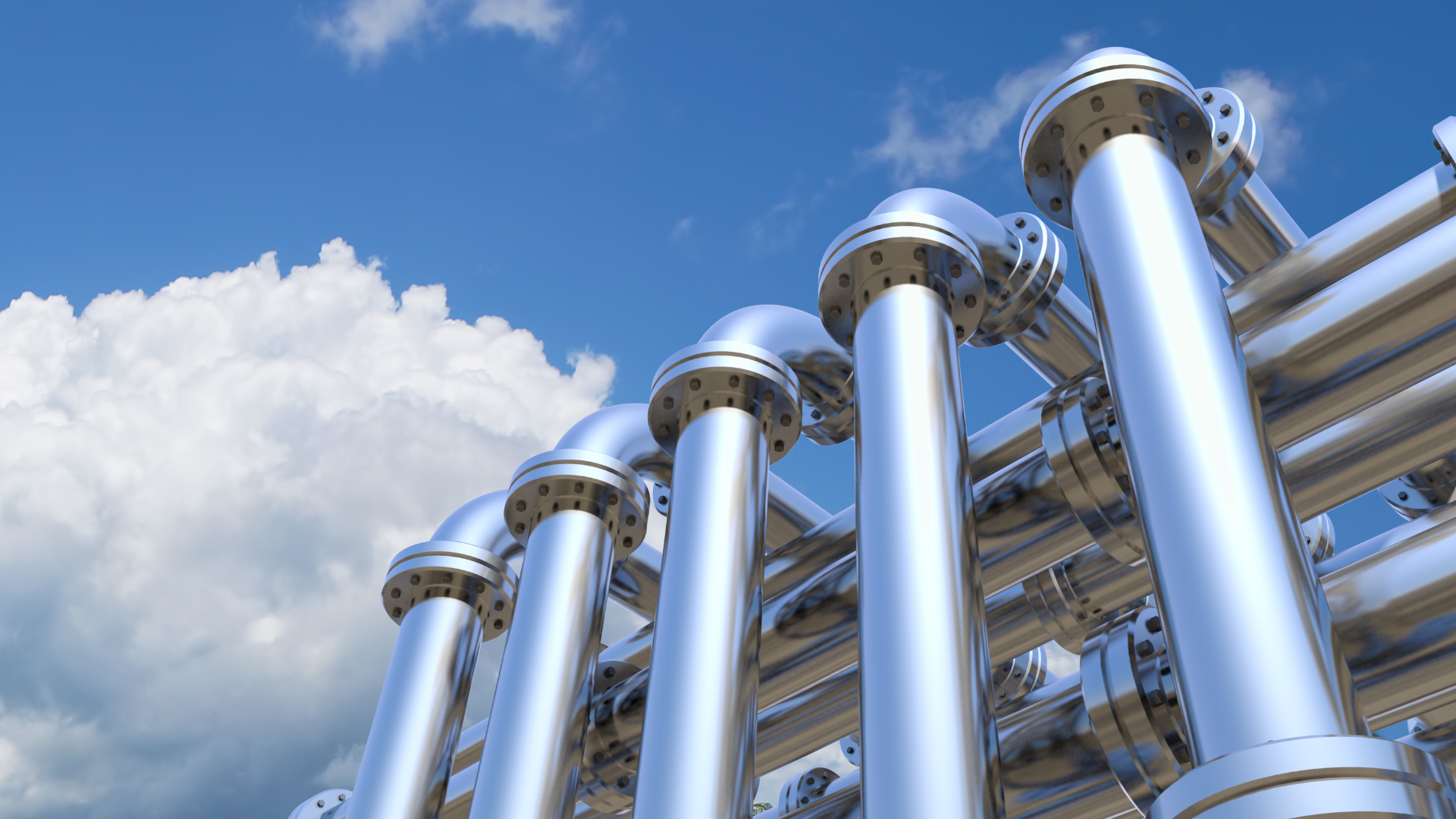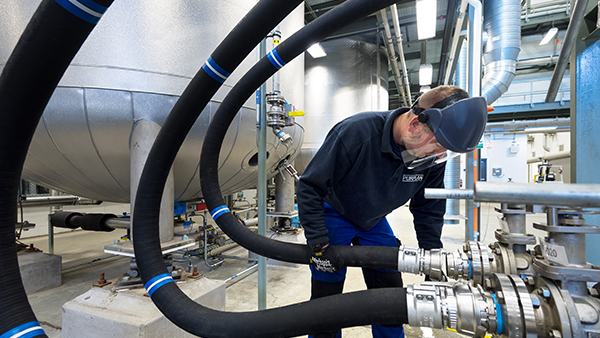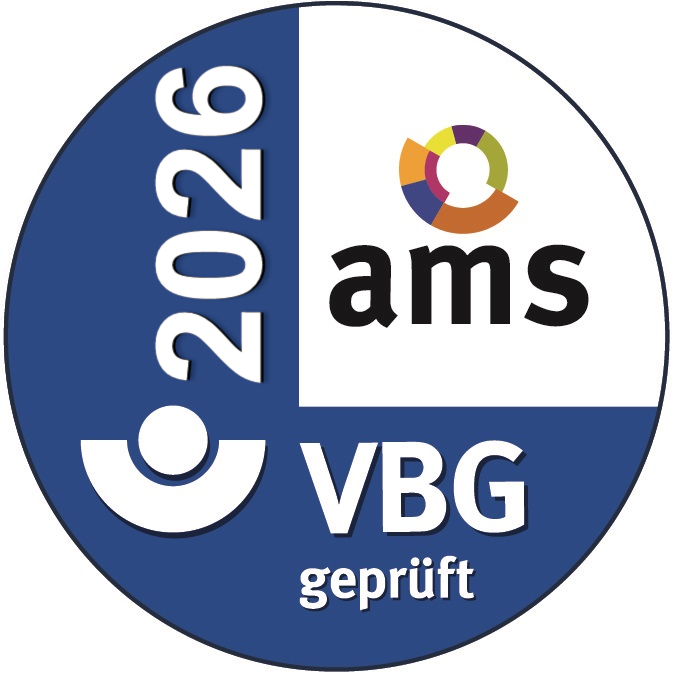Our services
Our services include:
- Plastic pipe construction PE, PP, PEHD
- Industrial pipelines
- Pipeline construction for gas supply and district heating
- detour
- Pipeline construction
- Installation, maintenance and servicing
- Double-walled pipelines
Pipes
Pipes can be found in a wide range of applications:
- Energy supply: Gas and oil pipelines transport fuels from production sites to consumers and are an essential part of the energy infrastructure.
- Chemical industry: In the chemical industry, special piping systems are required to transport various chemicals. Selecting the right materials is crucial here to prevent leaks.
- Heating and cooling systems: In buildings and industrial plants, piping is used to distribute heat and cold to ensure adequate temperature control.
Steels and stainless steels are not resistant to all media, which is why plastic pipes are used in many cases.
Assembly is not just assembly: PURPLAN offers precision craftsmanship by highly qualified specialists and engineering expertise in pipeline construction for industrial plants. Our experienced team meets all requirements for qualified assembly and installation in accordance with DIN CEN/TS 1591-4 and the high standards of occupational safety. SCC-trained fitters and certified welders have all the necessary qualifications for all relevant welding processes. Regular, targeted further training and courses ensure that we continue to maintain our high standards. This is the only way to maintain the best quality with the highest precision in the long term.
Certified precision
In order to guarantee comparable quality in pipeline construction, we ensure compliance with many regulations, norms, standards and certificates when installing and assembling our industrial systems.
- Compliance with all requirements of the Water Resources Act
- Occupational health and safety management system to certify the requirements for systematic and effective occupational health and safety
- Construction regulations for pipelines made of metallic materials
- Pressure Equipment Directive for placing pressure equipment on the market within the European Economic Area
- Standard for the execution of steel structures and aluminum structures, Part 1+2
- Quality requirements for fusion welding of metallic materials
- Standard for the testing of welders (fusion welding). Part 1: Steels
- Certified welders according to QW-301, Section IX according to US standards
- SCC employees: SCC stands for "Safety Certificate Contractors" and is a set of rules for a certifiable management system
Modern leakage monitoring
Modern leakage monitoring and resistant materials significantly improve the efficiency, safety and reliability of piping systems. By using robotics and automated systems, inspections and maintenance work can be carried out more precisely and effectively.
Find out more about leakage monitoring with PURPLAN.
Fragen und Antworten
Piping engineering refers to the planning, design, installation and maintenance of piping systems used to transport any media, including liquids and gases. These pipe systems can be used in various industries, including water supply, wastewater disposal, the oil and gas industry, the chemical industry and others.
There are different types of piping systems, including
- Water supply pipes
- sewage pipes
- gas pipes
- oil pipes
- chemical lines
- Heating and cooling systems
Pipeline construction comprises several steps, including
- Planning and design of the piping systems.
- Selection of suitable materials and diameters.
- Procurement of pipes and connecting elements.
- Excavation and site preparation.
- Installation of pipes and joints.
- Testing to ensure tightness and functionality.
- Surface restoration and landscaping adjustments.
- Regular maintenance and servicing.
The materials used for pipelines depend on the type of substances transported and the environmental conditions. Commonly used materials are steel, stainless steel, copper, PVC (polyvinyl chloride), PE (polyethylene) and various composite materials.
Environmental protection is of great importance in pipeline construction. Compliance with the requirements of the Water Resources Act is the top priority. Potential environmental impacts must be analyzed and measures taken to minimize risks. This includes the protection of water resources, the preservation of ecosystems and the prevention of pollution. Find out more about the Water Resources Act now.
Leaks in pipelines can be minimized by constant leakage monitoring using high-quality materials, correct installation and preventive maintenance. We would be pleased to inform you about our leakage monitoring.
The costs for pipeline construction vary depending on the project and type of pipeline. We will be happy to advise you! Contact us





![Daniel Küthe [Translate to English 22:] Daniel Küthe](/fileadmin/user_upload/Daniel_Kuethe.jpg)
![[Translate to English 22:] Nils Osthoff [Translate to English 22:] Nils Osthoff](/fileadmin/_processed_/6/8/csm_Nils_OsthofWeb_8dc116a7b9.jpg)



